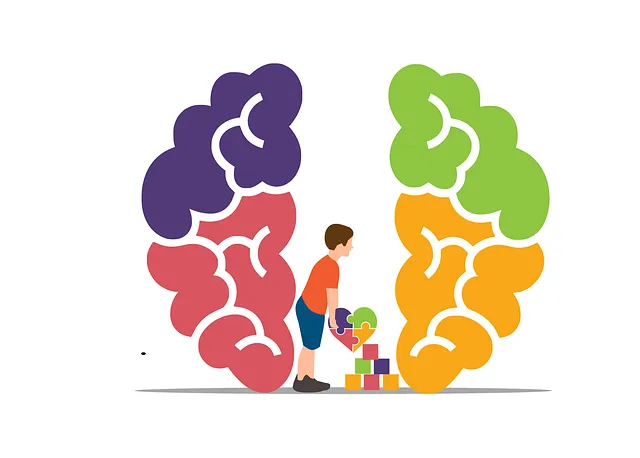In Denver, where culture masks hidden mental health struggles, the stigma surrounding mental illness poses significant barriers to awareness and support, as shown by Denver Kaiser Permanente behavioral health services reviews. To combat this, Denver offers Healthcare Provider Cultural Competency Training and Crisis Intervention Guidance, fostering understanding among professionals and reducing stigma. Positive reviews highlight Kaiser Permanente's patient-centered care and innovative therapy models, empowering individuals to openly discuss mental health. Community outreach programs, including workshops and peer support groups, demystify mental health experiences and promote early intervention, fostering connections and breaking down barriers.
In the heart of Denver, mental health advocates are leading the charge against stigma through innovative strategies. This article explores effective approaches to combat the pervasive impact of mental illness stigma within our communities, drawing insights from local heroes at Kaiser Permanente Behavioral Health Services. We examine their pioneering efforts and provide actionable strategies that foster understanding and empathy. Discover how these initiatives, grounded in Denver’s landscape, can be adapted for broader application, ultimately shaping a more inclusive society.
Key topics include: understanding the Denver perspective on mental health stigma, the role of Kaiser Permanente Behavioral Health Services reviews, and effective community-based strategies to reduce stigma.
- Understanding the Impact of Stigma on Mental Health: A Denver Perspective
- Kaiser Permanente Behavioral Health Services: Leading the Charge Against Stigma
- Effective Strategies for Reducing Mental Illness Stigma in Community Settings
Understanding the Impact of Stigma on Mental Health: A Denver Perspective

In Denver, the impact of stigma on mental health is a pressing issue, as it often prevents individuals from seeking essential mental health awareness and support. The Denver Kaiser Permanente behavioral health services reviews consistently highlight the challenges faced by patients due to this social barrier. Stigma can lead to isolation, shame, and even deter people from pursuing treatment, exacerbating their conditions. This is particularly concerning for a city known for its vibrant culture, where hidden struggles may go unnoticed amidst the hustle and bustle.
The Healthcare Provider Cultural Competency Training and Crisis Intervention Guidance offered in Denver aim to combat this stigma by educating professionals about the diverse nature of mental health experiences. By fostering an environment of understanding and empathy, healthcare providers can better serve their patients. This initiative reflects a commitment to reducing the stigma surrounding mental illness, ensuring that individuals feel empowered to access the care they need without fear of judgment or discrimination.
Kaiser Permanente Behavioral Health Services: Leading the Charge Against Stigma

Denver’s Kaiser Permanente Behavioral Health Services stands as a beacon in the fight against mental illness stigma. Recognized for its comprehensive approach to mental wellness, the organization offers a wide array of services designed to destigmatize mental health issues and foster empathy building strategies. Through innovative therapy models and community outreach programs, Kaiser Permanente Behavioral Health Services is at the forefront of advocating for evidence-based Mental Health Policy Analysis, ensuring that individuals in Denver and beyond receive the support they need without fear of judgment or discrimination.
The facility’s reviews highlight a commitment to creating a supportive environment where patients feel empowered to discuss their experiences openly. By integrating patient perspectives into its service delivery models, Kaiser Permanente Behavioral Health Services is not only reducing stigma but also enhancing the overall mental health ecosystem in Denver and beyond. This proactive approach ensures that mental wellness is prioritized, making it easier for individuals to access care and lead fulfilling lives.
Effective Strategies for Reducing Mental Illness Stigma in Community Settings

Reducing mental illness stigma requires a multifaceted approach that reaches into community settings where individuals interact on a daily basis. One effective strategy is Denver Kaiser Permanente behavioral health services reviews, which can highlight the quality and accessibility of care, demystifying the experience for those unfamiliar with mental healthcare. By showcasing success stories and sharing resources, these reviews foster understanding and reduce fear associated with seeking help.
Community Outreach Program Implementation plays a crucial role in combating stigma by bringing mental health awareness directly to diverse communities. Educational workshops, peer support groups, and collaborative events with local organizations can promote self-care practices while emphasizing the importance of early intervention and continuous support. Moreover, empathy building strategies, such as storytelling and open dialogues, help break down barriers by encouraging personal connections and fostering a sense of belonging for individuals facing mental health challenges.
Mental illness stigma reduction is a multifaceted effort that, as demonstrated by Denver’s perspective and Kaiser Permanente Behavioral Health Services’ leadership, can significantly improve mental healthcare accessibility and outcomes. By implementing effective strategies in community settings, we can foster greater understanding, empathy, and support for individuals living with mental health conditions. The work done by organizations like Kaiser Permanente serves as a model for others to follow, highlighting the power of proactive measures in reducing stigma and enhancing the overall well-being of communities across Denver and beyond. Through continued education, open dialogue, and collaborative efforts, we can create a more inclusive society that prioritizes mental health with the same urgency as physical health.






